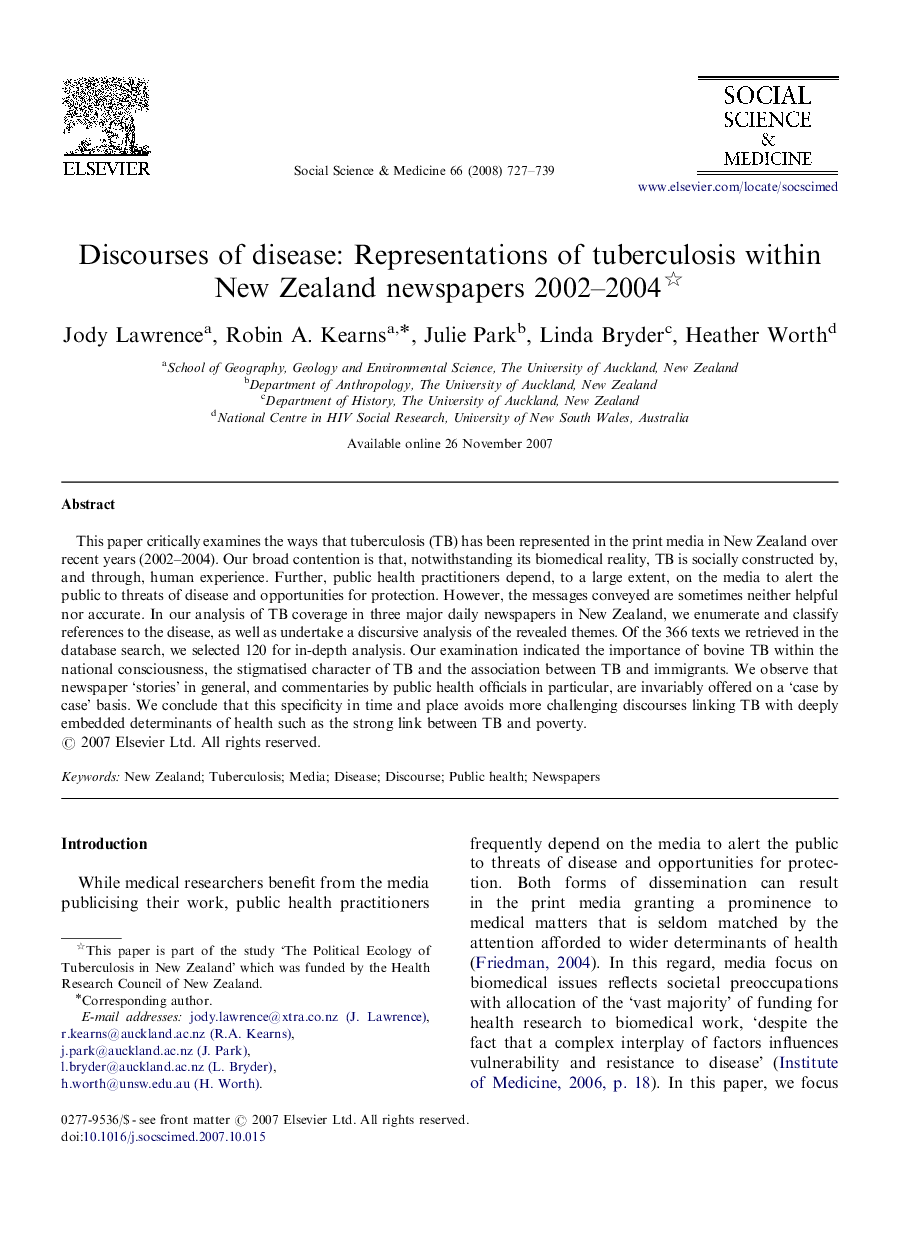| Article ID | Journal | Published Year | Pages | File Type |
|---|---|---|---|---|
| 953570 | Social Science & Medicine | 2008 | 13 Pages |
This paper critically examines the ways that tuberculosis (TB) has been represented in the print media in New Zealand over recent years (2002–2004). Our broad contention is that, notwithstanding its biomedical reality, TB is socially constructed by, and through, human experience. Further, public health practitioners depend, to a large extent, on the media to alert the public to threats of disease and opportunities for protection. However, the messages conveyed are sometimes neither helpful nor accurate. In our analysis of TB coverage in three major daily newspapers in New Zealand, we enumerate and classify references to the disease, as well as undertake a discursive analysis of the revealed themes. Of the 366 texts we retrieved in the database search, we selected 120 for in-depth analysis. Our examination indicated the importance of bovine TB within the national consciousness, the stigmatised character of TB and the association between TB and immigrants. We observe that newspaper ‘stories’ in general, and commentaries by public health officials in particular, are invariably offered on a ‘case by case’ basis. We conclude that this specificity in time and place avoids more challenging discourses linking TB with deeply embedded determinants of health such as the strong link between TB and poverty.
